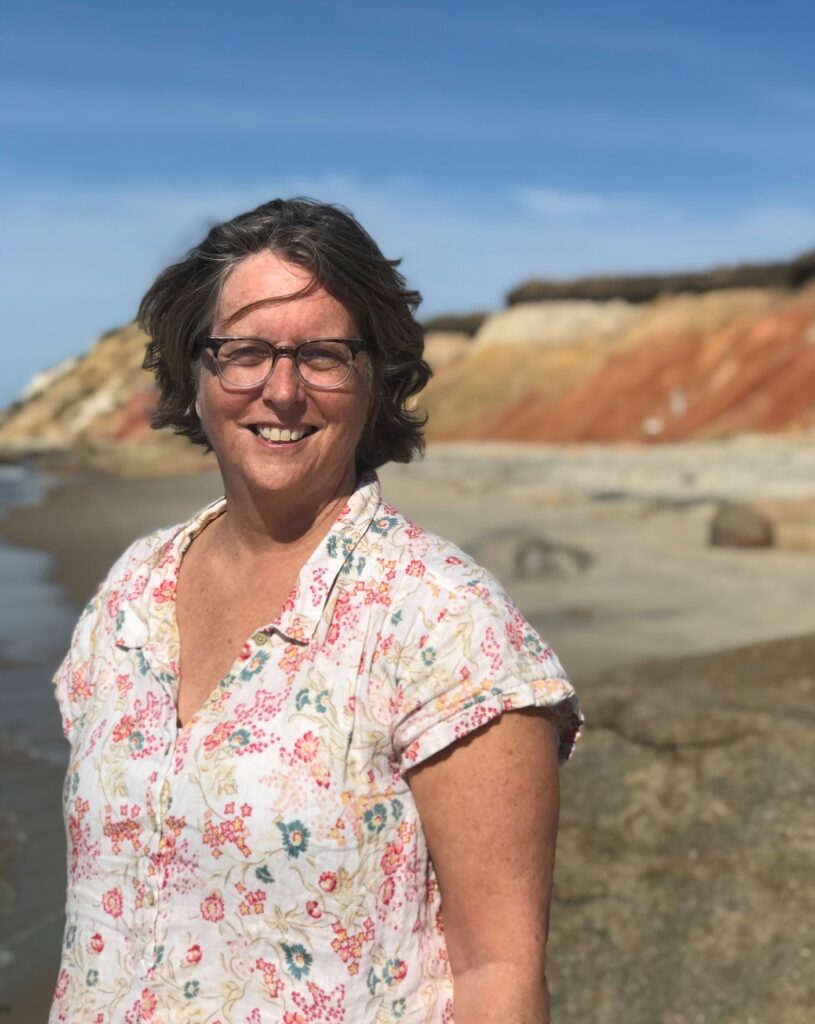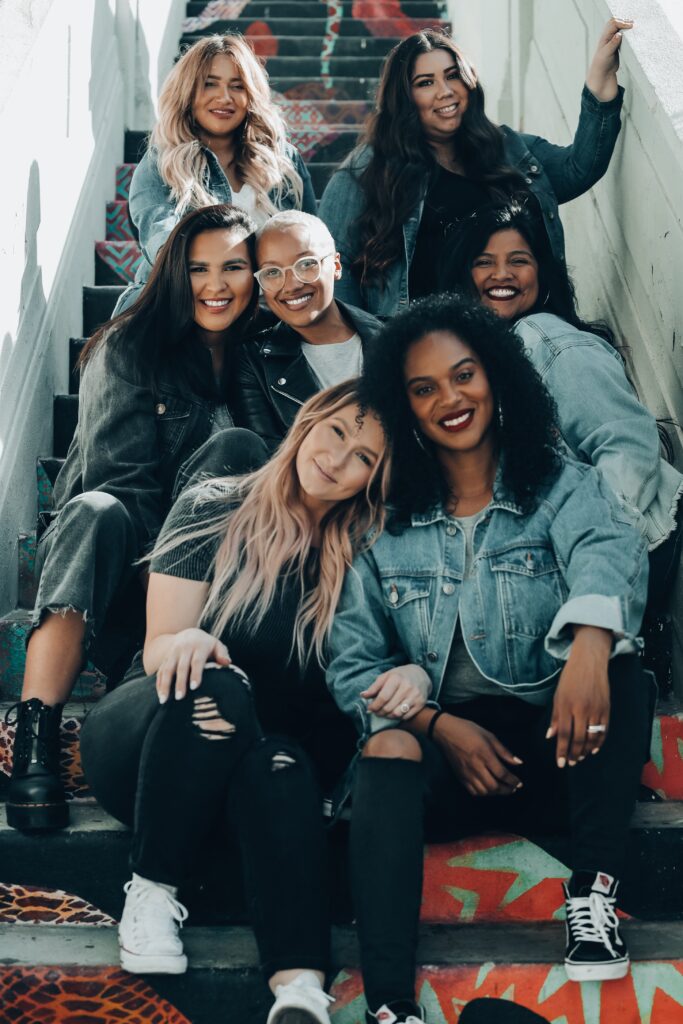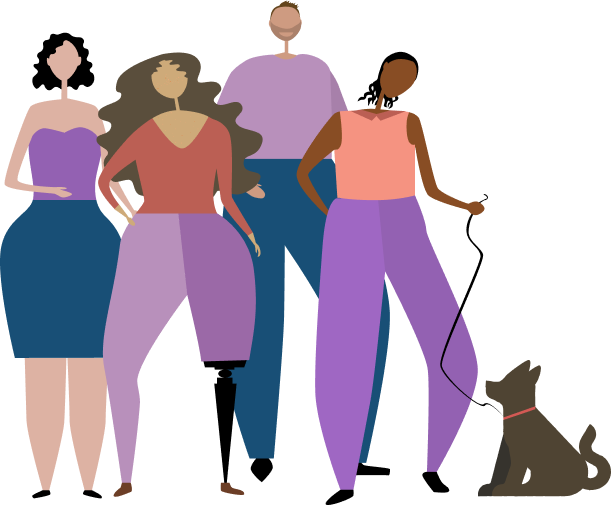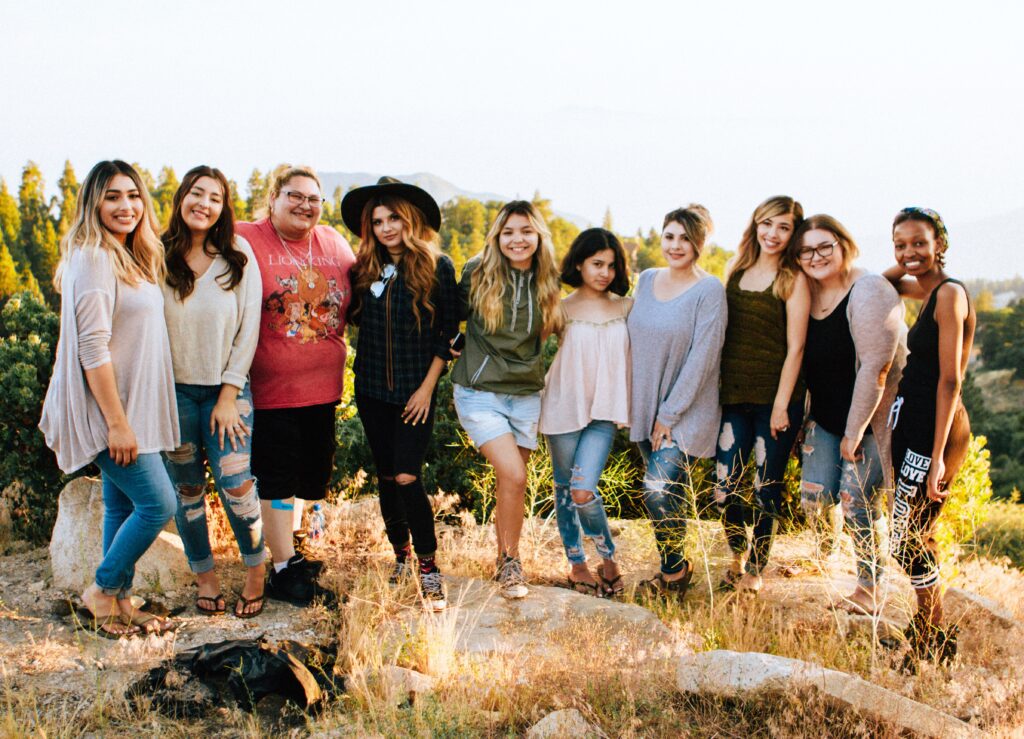Meet the team behind the historic queer women’s survey
You are invited to discuss preliminary findings and next steps in the landmark LGBTQ Women*s Survey!
Join Urvashi Vaid, Prof Alyasah Ali Sewell, Jaime Grant and other members of the National LGBTQ Women*s Survey team for an update on their progress. They will have some preliminary results to spark a discussion about the type of data you would most like to prioritize.
CHOOSE A DATE: They will be hosting three zoom calls on different dates in late April and early May to facilitate everyone’s participation.
To select a date and register, please go here.
Last year we interviewed Jaime M. Grant about the objectives of this historic survey. How much do we know about queer women? I mean, really know. What is it like to live as a lesbian, a gay woman, a bisexual woman, a transgender lesbian or a queer woman in 2021? What has it been like your whole life? This month, the world’s first truly in-depth and large-scale survey of this community will launch, and its creators are calling on queer women to take the survey and contribute to their own visibility, wellbeing, and governance.

Grant was brought on board partly because of her stellar work with another landmark project: the historic National Transgender Discrimination surveys of 2011 and 2015, which changed the game for trans organizing by collecting a massive amount of national data on this drastically under-served community. In this endeavor, Jaime has been backed by a highly-educated, experienced and diverse “dream team” of activist experts and advisors; but as one of the chief architects of ideas for the project, Jaime was keen to tell me why a survey on queer women is so important now, what it involves, and why you should take it.
Jaime, what was the lightbulb moment for this National LGBTQ+ Women’s Community Survey?
Jaime Grant: A couple of years ago, Urvashi Vaid and I were talking about how research on LGBTQ+ women has been so piecemeal; that there isn’t the kind of comprehensive portrait of what’s going on in LGBTQ women’s lives… We really wanted to do a very nuanced gender and sexuality instrument. So, I always like to say: I’m a bossy femme bottom, I’m 60 years old. I live in D.C., I’m a mom, I’m a radical. My family is configured like a village model rather than a nuclear family model. All of those things I’m going to be able to put down in the survey, which has been impossible with any existing research projects. We don’t ever really get to describe our lives as LGBTQ+ women and then also look at the challenges we’ve faced. How is misogyny, racism, classism, our experiences in educational institutions, our experiences in the workplace. How is all this playing out in terms of our well-being, our economic security, our mental health, our physical health? This study will be able to look at all those things.
How long will it take for womxn to complete the survey?
Our goal is 40 minutes or a bit less, which is long. This is a commitment because nobody else is doing this for us. We have to build our knowledge base, as always, as queers. Each and every respondent’s commitment of that time is going to make a crucial difference in our lives. … I think most of us are very frustrated by how incomplete the picture is of our lives, both the challenges and the kind of unique ways we create our amazing LGBTQ+ lives and how we support each other, how we thrive. I think all of that remains so underground or it’s just in-community knowledge. But it’s not any kind of knowledge that drives policy or solutions to some of the major challenges we face.
Do you anticipate that some women might not want to give up information about themselves?
The key thing here is: I am not the US government. And that’s why trans people, who you could say are some of the most vulnerable people in the country in terms of being targeted by the government — in both of the trans surveys, people filled them out in huge numbers and spent the time because after the first one came out, we finally had national data it had such a massive impact on our organizing. We briefed every Secretary in the Obama administration on the findings of that study. I mean, that was unheard of. That was impossible to imagine when we started that work. And we’re coming into a time where the Biden administration has good intentions and lots of good people in there. But we also need the hard data to make our arguments for LGBTQ+ women who are often not centered even in our own movement. Everybody will see if they go to the website and they look at this spectacular advisory committee — it’s a group of community activists and advocates who have hundreds of years of experience in our communities, deep in the communities where we live and work — we are not the US government.
So where will all of this data go once it’s collected?
All the data is completely confidential and anonymous. You never give any identifying information. And then it goes into a server at Emory University, a confidential university guarded system. We have to go through a whole research approval process with these universities to protect the subjects of our studies and that data will be well guarded so that when we start to do our analysis, we have a strong and vetted sample to work with.

Apart from just contributing to a body of knowledge, how might this data come back to respondents as a good thing?
It’s a great question. If you look at the ways in which policy affects women: some of the things that are already clear are health disparities; lesbians are getting really shitty care from doctors and not having the access we need. Family policies are often nuclearized family policies. Even in our movement, we go for things like marriage, when in fact, I think one of the things we are likely to find is that lesbians are forming their families in all kinds of different ways, beyond coupled, two-parent nuclear families. And the current ways we’re going after policy does not really fit how we are raising our kids, taking care of our lovers and our ex-lovers, our disabled friends, taking care of our parents. I think the caregiving burden on LGBTQ+ womxn is completely invisible in any policy work. And that’s just one example. When you look at everything: access to education, experiences of violence in various systems, including our own relationships, including police violence — those are the kinds of things that we hope to bring front and center.

So the data will help shape policy but can it also help educate our own community and make us more visible to each other?
There’s no doubt… Misogyny is killing all of us. We are in the same water if we’re not in the same boat. And there’s a whole bunch of ways that sexism and people who have power have pitted LGBTQ+ women against each other. And we want to intervene into that fractious place of violence. We want to change the game around how people are thinking about who an LGBTQ+ woman is, what she’s facing in her life to become herself and to have the life she wants. I mean, that is at bottom a lesbian-feminist or an LGBTQ+ women feminist idea: that we all get to self-determine and we all get to live the lives we have dreamed of. I hope this study will show that all of us are facing down the same kinds of forces. And our data is really going to show who’s thriving, who’s having a harder time, who’s getting targeted by the state… And I hope to create a big tent around that term ‘LGBTQ+ Women’ for future research. Because I’m sick of the researchers getting everybody wrong and putting everybody in the wrong categories. We are going to create those categories for future researchers so they understand what they should be looking at and how they should be looking at it.
What might be the most surprising questions in the survey?
I would say our gender and sexuality questions offer the most interesting and nuanced data collection innovation in the study and I think it’s going to set a new standard for researchers because it will illuminate the creativity, the resistance, the resilience, the brilliance in the ways that LGBTQ+ women construct their identities and their lives over the lifespan. And we all know how shifting and changing and interesting that is — and nobody has that data in a large, national sample. I mean, if you identify or have identified as an LGBTQ+ woman, you’re going to be able to show how that has emerged of shifted over the course of your life. I can’t wait for that data. We’re super-excited for it.
Anything else you want to tell womxn?
This is a long survey, but it’s long for a reason. We really, really need to tell a complex story about our lives. So get yourself a cup of coffee. Tell all the people who are demanding all the things of you to leave you alone for an hour and take the survey! Our lives depend on it.
The National LGBTQ+ Women*s Community Survey is live here.







I would like to do the survey when it is available
Yes please I will do your survey.